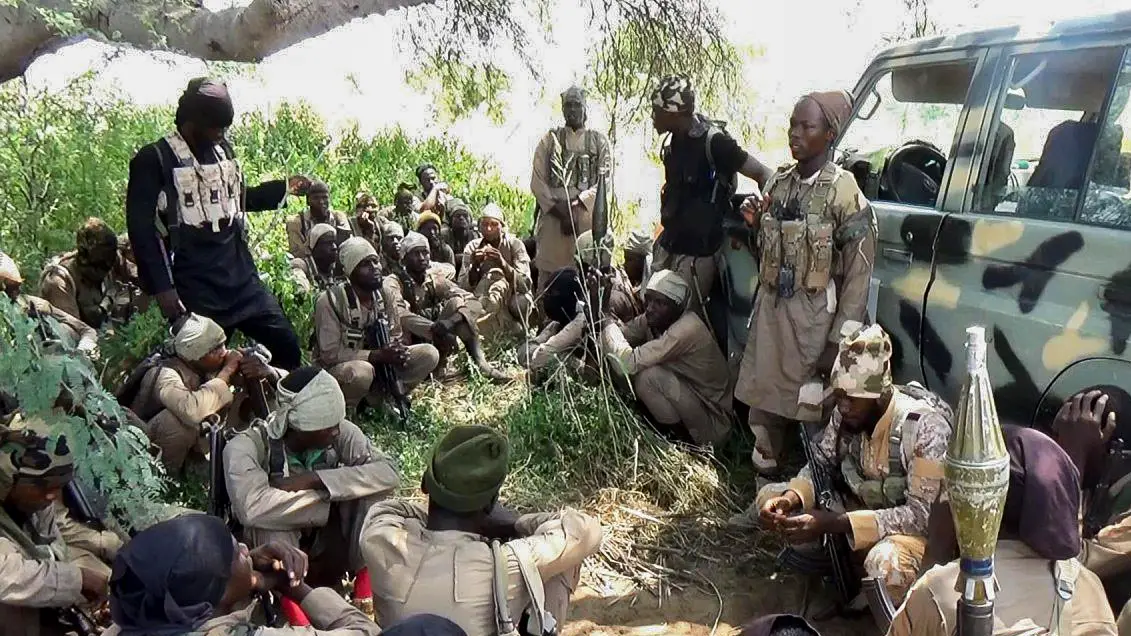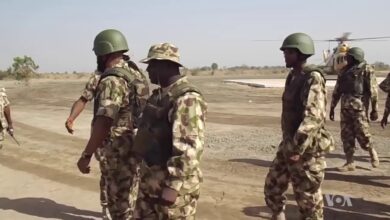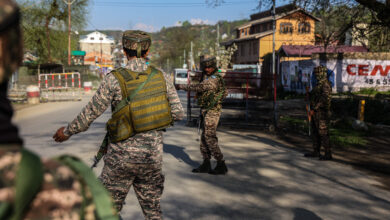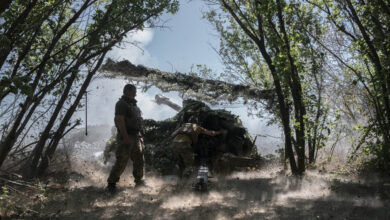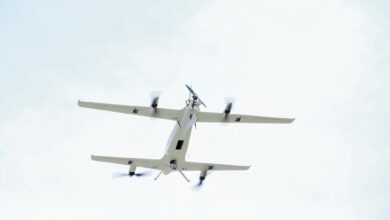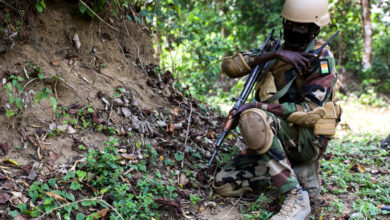Eight Nigerian soldiers were killed in an insurgent ambush in the Lake Chad area of Nigeria’s Borno state on Friday, August 30, two military sources told AFP.
Heavily-armed fighters believed to be from Islamic State West Africa Province opened fire on a military convoy, 35 km (22 miles) west of Monguno, where the soldiers were based.
Daily Trust reported a security source as saying the troops were ambushed in the Gasarwa area, between Monguno and Gajiram.
The patrol was heading to the state capital Maiduguri when they came under “heavy fire from the terrorists who used RPGs [rocket-propelled grenades] and heavy guns,” a military officer told AFP, speaking on condition of anonymity.
“The terrorists killed eight troops in the ambush which happened around midday,” said a second officer, also speaking on condition of anonymity. “Five more soldiers are still unaccounted for,” he said.
The militants destroyed two trucks and a pick-up fitted with a machine gun, before seizing weapons and withdrawing into the bushes, the army officials said.
Soldiers who arrived after the attack briefly closed the highway while a Nigerian Air Force jet patrolled in search of the attackers, civilian eye witnesses told AFP.
Update September 1 Late on Saturday night, the Nigerian Army released a statement about the incident, saying that troops attached to Super Camp Monguno had “dealt a devastating blow on Boko Haram terrorists.”
It said a patrol “came in contact with the terrorists and engaged them with heavy volume of fire that neutralized countless number while a few escaped with gun shot wounds,” adding that weapons and equipment had been recovered.
“Sadly, during the encounter 3 of our gallant soldiers paid the supreme price while 8 other soldiers sustained injuries,” the release said.
Earlier on Saturday, ISIS said fighters from its West Africa affiliate were responsible for the ambush, which it said was carried out near Maiduguri. It claimed eight soldiers were killed.
On Sunday, ISIS propaganda agency Amaq released a video that it said was from the ambush that showed two large trucks that had been destroyed.
ISWAP began to intensify attacks on Nigerian military targets in July 2018, and the Lake Chad area, where it is the dominant insurgent group, has seen particularly fierce fighting.
On August 17, ISWAP fighters killed four soldiers in an ambush on a Nigerian military patrol in Mogula, close to the border with Cameroon.
ISIS claimed ISWAP fighters killed five Nigerian soldiers in an ambush in the Dikwa area on August 20.
On August 24 and 25, ISIS claimed ISWAP fighters had targeted soldiers in Niger in two IED attacks in the Lake Chad area.
The jihadist group known as Boko Haram began its bloody insurgency in northeastern Nigeria in 2009, but it has since spread into neighboring Niger, Chad and Cameroon, prompting a regional military response.
Boko Haram split into two factions in mid-2016. One, led by long-time leader Abubakar Shekau, is notorious for suicide bombings and indiscriminate killings of civilians. Shekau pledged allegiance to ISIS leader Abu Bakr Al-Baghdadi in March 2015, but ISIS central only gives formal backing to the other faction, which it calls Islamic State West Africa Province.
The U.S. assesses that Boko Haram and ISWAP have been responsible for more than 35,000 deaths since 2011. More than two million people have been displaced, sparking a dire humanitarian crisis in the region.
The regional Multinational Joint Task Force, which comprises personnel from Chad, Cameroon, Niger, and Nigeria, launched Operation Yancin Tafki on February 21 to battle the insurgents. It has said the cross-border operation is aimed at “making islands and other settlements in Lake Chad untenable for Boko Haram Terrorists.” MNJTF troops have engaged militants in Nigeria, Niger and Chad.
With reporting from AFP. This post was updated on September 1.

